---------------------------------------------------------
Did you know that over half the breeds of chickens in America are on the endangered list? How is it possible that an animal that most of us think of as commonplace, be endangered? With the popularity of industrialized farming, the small family farms have gradually fallen away. With them have fallen the wonderful variety of chicken breeds that once served us so faithfully. The industrial farms favored newer hybrid breeds. They have been bred to grow rapidly for faster meat harvesting, or for increased egg production. Today, most Americans eat eggs and chicken meat from just a couple specialized hybrid breeds.
Thinking about starting a flock of backyard chickens of your own, or about expanding your current flock? Becoming a breed steward for Heritage Breed Chickens can help protect endangered breeds from extinction. It will also give you a high quality flock for either eggs or meat.
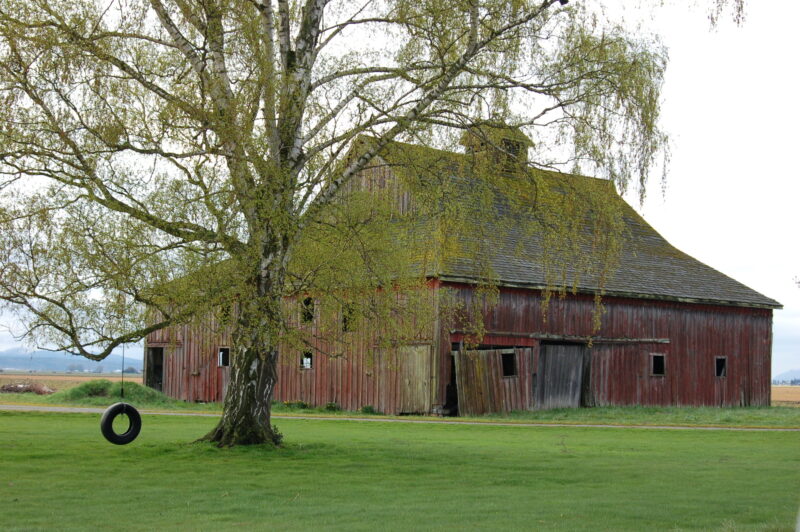
What are Heritage Breed Chickens?
Heritage Breed Chickens are old fashioned breeds that have been faithfully serving homesteaders and family farmers in this country for centuries.
Heritage chickens are well adapted to living outdoors in a variety of climates. They are generally healthier with longer lives and have more productive years than the modern hybrid breeds.
The hybrid production layers will pump out more eggs per week during their youth. After just a couple years they are exhausted of their eggs and generally stop laying. This is fine in the egg industry. They are just culled and replaced with fresh new birds. Heritage breeds can also be excellent layers. Their productive years can reach into 5, 6, even 7 years and beyond. This makes them a good choice for backyard farmers.
What makes a chicken a Heritage Breed chicken?
Heritage Breed chickens must meet the following four requirements.
1) The American Poultry Association has been setting breed standards of perfection since 1873. A Heritage Breed Chicken must adhere to these standards. They also must be from a parent AND grandparent breeding stock of a breed recognized by the APA prior to the 1950s.
2) A Heritage chicken must be reproduced through natural mating (no artificial insemination).
3) They also must have the genetic ability to thrive in pasture based, natural outdoor living. Many hybrid breeds have lost the natural instincts for broodiness, predator safety & foraging and have weaker immune systems from generations of confinement.
4) Lastly, they must have a moderate to slow growth rate. This allows them to develop strong skeletal systems & healthy organs.
How can I find Heritage chickens?
Heritage chickens will be marketed as such. While it is possible to buy “heritage” breeds from low quality breeders, unless they meet all of the above requirements they technically shouldn’t be classified as “heritage”. For example a large hatchery reproducing heritage breeds by artificial insemination would not be producing Heritage Chickens. Non “heritage” chickens wouldn’t help recover the status of these endangered breeds, even though they can make lovely pets.
If you are serious about furthering Heritage Breeds, carefully research the breeder you are buying from. There are many private breeders of Heritage chicken. There are also some larger, national hatcheries that sell certified Heritage Breeds like Meyer Hatchery, Murray McMurry Hatchery and Cackle Hatchery.
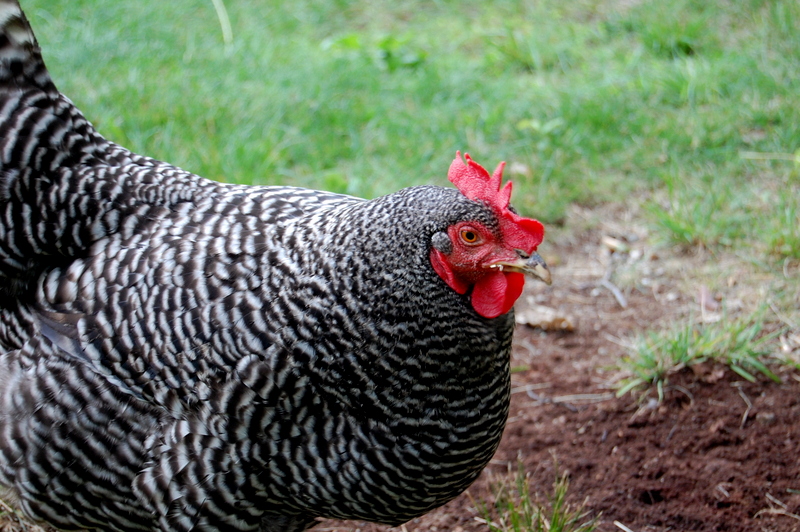
Heritage Breeds
There are around 70 breeds of chickens commonly found in the United States. 49 of them fall somewhere on the endangered list.
The 12 critical level breeds include: Campine, Chantecler, Crevecoeur, Holland, Modern Game, Nankin, Spanish, Sumatra, Yokohama, Sultan, Russian Orloff, and Redcap.
The 12 threatened level breeds include: Buckeye, Cubalaya, Faverolle, Lakenvelder, Buttercup, Andalusian, Delaware, Dorking, Java, Langshan, Malay, and Phoenix.
The 18 watch level breeds include: Ancona, Aseel, Brahma, Catalana, Cochin, Cornish, Dominique, Hamburg, Houdan, Jersey Giant, La Fleche, Minorca, New Hampshire, Old English Game, Polish, Rhode Island White, Sebright, & Shamo.
The 7 recovering level breeds include: Australorp, Orpington, Plymouth Rock, Wyandotte, Non Industrial Rhode Island Red, Sussex, and the Non Industrial Leghorn.
You’ll notice the Heritage Breeds tend to be named after their area of origin or their creator. Wyandottes get their name from the Wyandotte Native American Tribe. Faverolle is named from the French village of Faverolle where they originated. Orpingtons originated in the town of Orpington in England. The hybrid production breeds tend to have “flashier” names like Red Stars or Golden Comets.
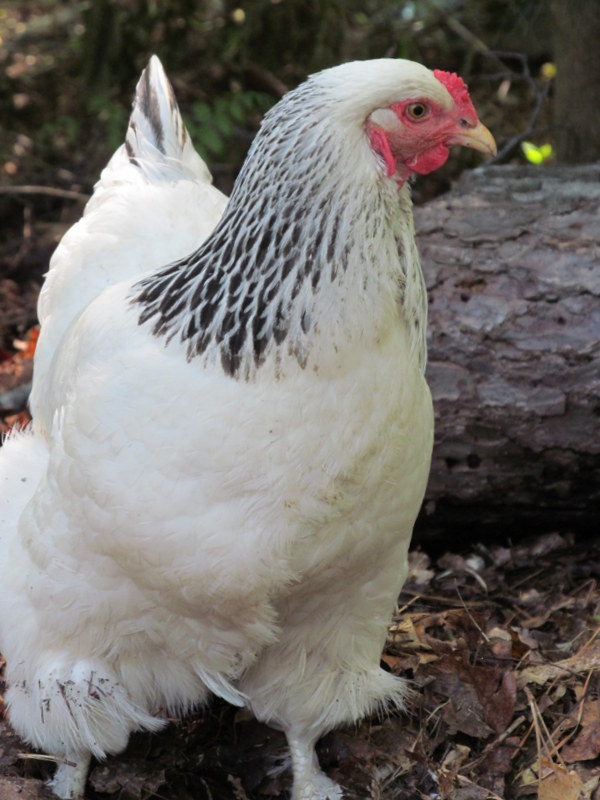
How can you help?
If you can keep chickens, consider adding Heritage Breeds from reputable breeders or hatcheries to your flock. This helps support long term conservation. If you will be getting into breeding, keep the breeding flock of Heritage chickens separate from your other breed flocks.
Through careful selection of birds that don’t meet the standards of perfection, you can have a hand in protecting these important chicken breeds! Even if you don’t get into breeding, adding a few Heritage breeds to your backyard helps to support Heritage hatcheries. You will also have a high quality flock to enjoy. If you can’t have chickens in your backyard, find a local small farmer who raises Heritage Breeds. Support them with your purchase of fresh eggs or meat.
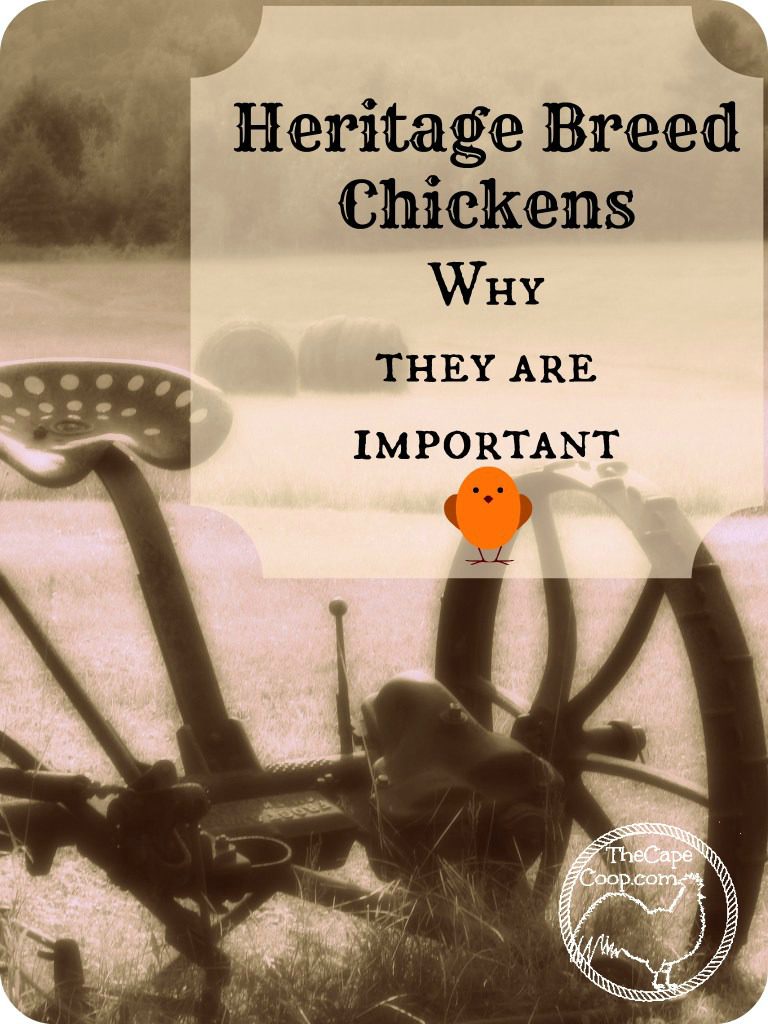
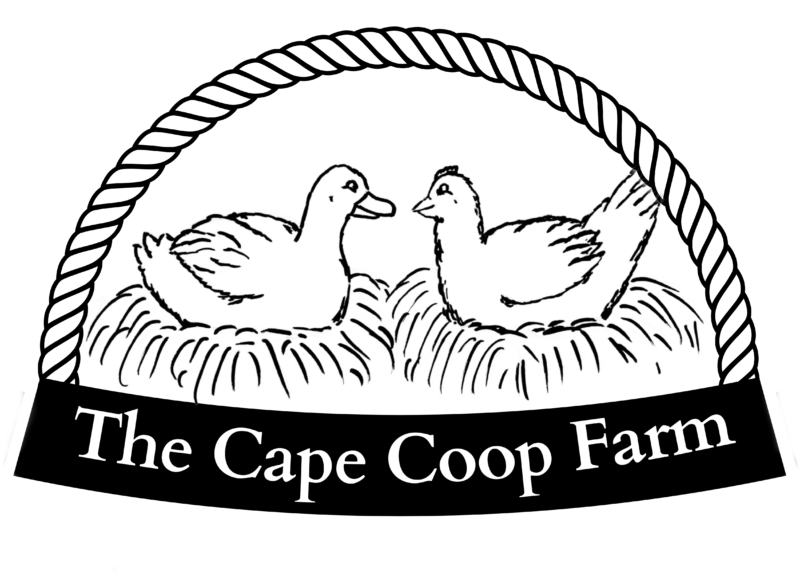


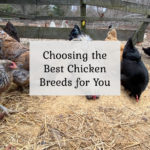


Ty R Frederickson
Thursday 29th of November 2018
Hello, I am looking for a Yokohama for Christmas. Or perhaps a couple of them. I have struggled to locate one that I can either pick up or have mailed to me. Any insight?
Liz
Thursday 29th of November 2018
Getting one before Christmas could definitely be challenging unless you know a local breeder. Most major hatcheries don't really ramp up production until early spring, especially on breeds like Yokohama that are not particularly cold hardy. I did a quick search on the online hatcheries I use and the closest I could come to Christmas availability was Murray McMurray hatchery, but they don't have any until late January. If you have the ability to hatch eggs, you might be able to expand your search by getting some fertilized eggs. I've ordered some rare breed hatching eggs off Ebay and had good luck with them. I wish I had better leads for you!
Shelly Oswald
Monday 26th of March 2018
Hi Liz,
Great article, but there is one correction that should be made - none of the hatcheries mentioned have "certified" flocks. Currently, there are three APA certified flocks - Good Shepherd Poultry Ranch, Old Time Farm (Partridge Chantecler and Standard Bronze Turkeys) and Greenfire Farm.
Liz
Monday 26th of March 2018
Thanks for the info Shelly!
Laura
Wednesday 14th of March 2018
Hello, Do you have Giant Brahma chickens for sale or know of anyone in the US that we could purchase 3 ? Any references would be greatly appreciated. Thank you!
ps> we are in Pennsylvania.
Liz
Thursday 15th of March 2018
Hi Laura, I don't know of anyone that specifically breeds the giant Brahmas - but Brahmas in generally are a really large chicken. I have bought Brahmas from My Pet Chicken and they have been healthy and BIG
Alecia @CSNY
Thursday 11th of February 2016
I love my Brahmas, they were one of the first breeds I ever picked out for my own flock. They are such big, gentle birds. Even the roosters are sweethearts (unfortunately that makes it harder to eat them).
Liz
Thursday 11th of February 2016
Our Brahma was just the sweetest little girl, friendly & a great layer (and I'm a sucker for any chicken with feather feet lol). They are great birds!